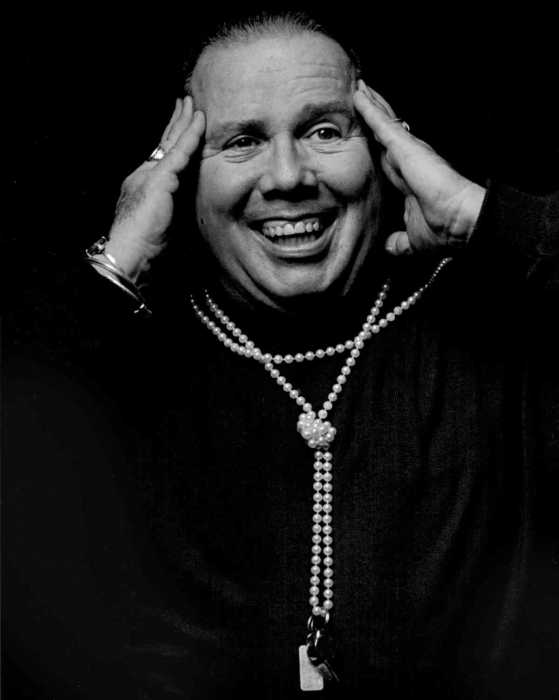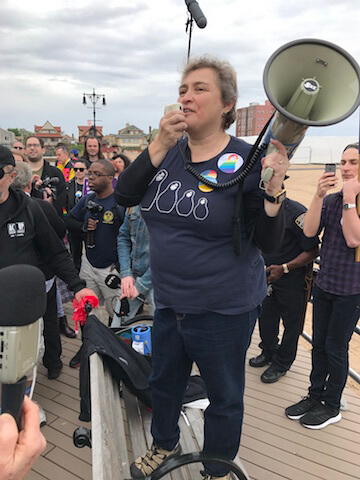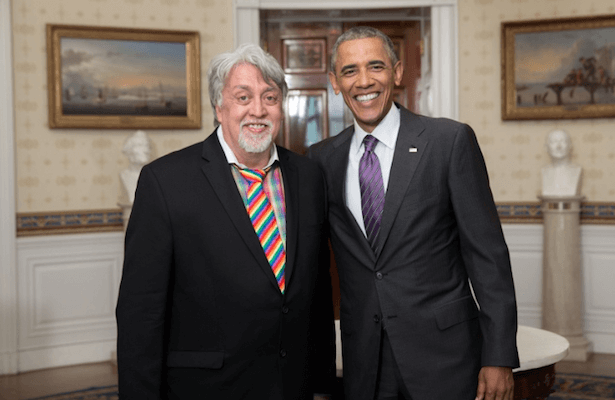US Representative David Cicilline, an out gay Rhode Island Demcrat. | US CONGRESS
BY PAUL SCHINDLER | Comprehensive equal rights legislation — guaranteeing the nation’s LGBT community of nondiscrimination protections in employment, housing, public accommodation, and access to credit — is likely to be introduced before the end of June, according to congressional staffers working on the bill.
“We very much hope and intend to have it introduced this month,” Sarah Trister, legislative director for US Representative David N. Cicilline, an out gay Rhode Island Democrat who will be the measure’s lead sponsor in the US House of Representative, told Gay City News. “My boss and Senator Merkley are very committed to introducing legislation that is comprehensive and representative. Something that people can really rally behind.”
Oregon Democrat Jeff Merkley will take the lead on the bill on the Senate side.
Cicilline, Merkley pledge broad push with no special religious carve-outs, looking to move this month
The new legislation marks a sharp departure from the LGBT community’s Capitol Hill strategy dating back more than two decades, during which the narrowly tailored Employment Non-Discrimination Act, or ENDA, was the sole focus of its equal rights lobbying. Even in limiting its scope to jobs protections, ENDA was never able to win approval from both houses of Congress in the same session, with a Democratic-led House approving it in 2007 and a Democratic-led Senate doing so in 2013.
Given the failure of winning with ENDA and in light of advances on other LGBT fronts — not only marriage equality, but also with some limited nondiscrimination wins in the courts and Obama administration regulations providing protections in specific circumstances — advocacy groups and grassroots activists have increasingly called for a more comprehensive approach to equal rights legislation. The fact that the current Republican leadership in both the House and the Senate have closed the door on any action on ENDA through at least the end of 2016 made this year a logical time to regroup for the longer haul.
The new, bolder approach is also informed by growing criticism of the religious exemption language in the version of ENDA passed by the Senate two years ago — language intended to win GOP support for the measure. Legal experts — including Evan Wolfson, the founder and leader of Freedom to Marry, and Ian Thompson, a legislative representative in the American Civil Liberties Union’s Washington lobbying office — had criticized that language as “a license to discriminate.” Last year’s Hobby Lobby ruling from the Supreme Court, which allowed a tightly held family business to assert religious freedom exemptions from contraceptive insurance requirements of Obamacare, and this year’s furor over so-called religious liberty measures that were in fact thinly veiled attacks on LGBT rights only made ENDA’s religious exemption language more unpalatable.
In her comments to Gay City News, Trister from Cicilline’s office said that religious exemption language would replicate that included in civil rights laws based on race, ethnicity, sex, and other protected categories.
“Our plan is to go through statutes and existing case law so that the protections offered are exactly the same as those for other protected groups,” she said.
What Trister would not say was whether the new legislation would amend the 1964 Civil Rights Act, which is the nation’s foundational nondiscrimination statute.
“There are lots of different ways to do this,” she said, a comment that suggests there are many open questions remaining — which seems unlikely given how close to introduction the sponsors say they are.
Sources who have seen drafts of the legislation told Gay City News that the drafting of the measure has been well along for months and does adopt the approach of amending the 1964 Act, as well as other existing legislation. Prior to the original introduction of ENDA back in the early 1990s, gay and lesbian advocates had pursued a path of adding sexual orientation to the 1964 Act for nearly two decades. That approach was pioneered in Congress by two New York Democrats — Bella Abzug and Ed Koch.
Those privy to the efforts of the working group developing the legislation — led by the Human Rights Campaign with the active participation of the Center for American Progress and the Leadership Conference on Civil and Human Rights — are tight-lipped and unwilling to go on the record for fear of losing their access.
Even those who have been given less direct access to the process are shy about divulging details of what they’ve learned. On June 5, Cicilline and staffers from his office and Merkley’s convened a call with a handful of grassroots activists, all but one of them New Yorkers. Gay City News spoke to two of them, who would only share their impressions of the call, not the content of what they learned from Cicilline.
“I think I have a good nose for BS, and I don’t sense that’s what was going on here, and so I don’t want to comment because I don't want to give up that good-faith place,” said Ken Kidd, who is active with Queer Nation. “Because I feel it’s important to get grassroots input from those who have been trying to change the conversation. We’ve got one chance to get it right and get comprehensive civil rights protections that are no different than anyone else’s.”
Andy Humm, the co-host of cable TV’s “Gay USA” and a regular Gay City News contributor, was also careful in his comments.
“It’s obvious that they’re making an effort to reach out to different segments of the community,” Humm said. “I hope we see a bill before it’s submitted, and I made that point. Because we don't want to see what happened the last time, with people harping from the sidelines about a bill that was compromised. That was the purpose of my getting on the call. Whoever does this needs to keep it clean and make it a bill that we can work on for the long term if necessary. There’s no reason to make any short-term compromises.”



































